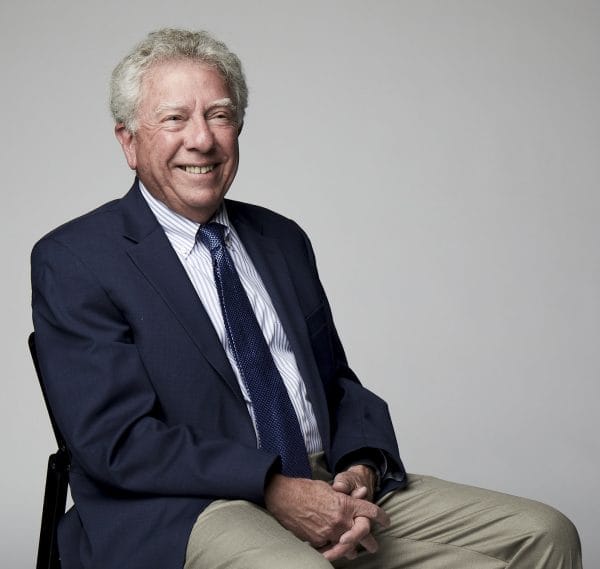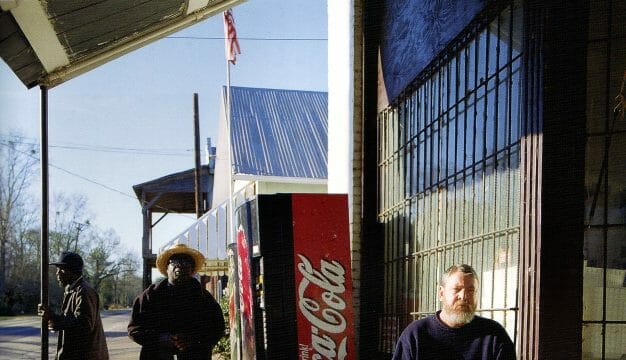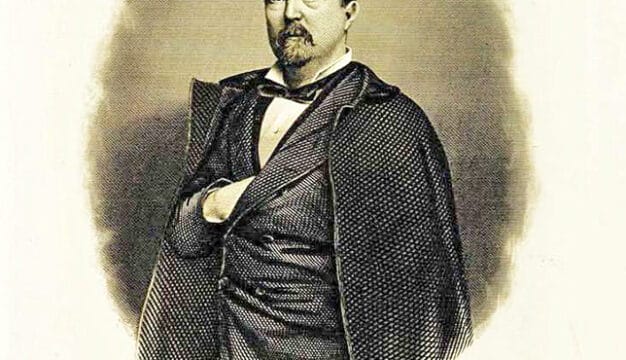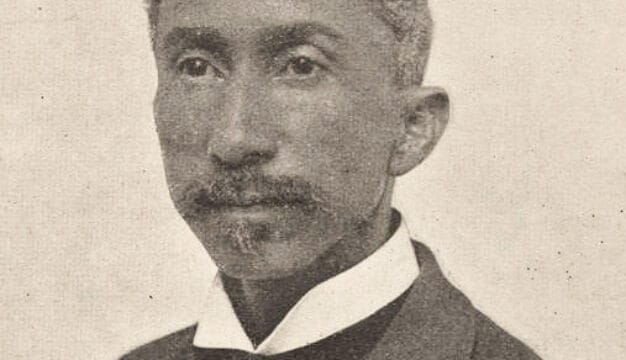Hank Klibanoff
 Hank Klibanoff
Alabama native Henry Samuel “Hank” Klibanoff (1949- ) is a veteran American journalist whose renowned newspaper career of more than 30 years included documenting some of the best and worst of the South’s recent civil rights history. In 2007, he received a Pulitzer Prize for history with fellow newspaperman Gene Roberts for their book The Race Beat: The Press, the Civil Rights Struggle, and the Awakening of a Nation. In 2018 he received a Peabody Award for the first season of his podcast, Buried Truths, the story of the murder of Isaiah Nixon, an African American farmer killed in 1948 for voting in rural Georgia, and in 2022 Klibanoff was confirmed by the U.S. Senate as a presidential appointee to the federal Civil Rights Cold Case Records Review Board charged with reviewing and releasing the government-held records of cold criminal cases of murders and other racially motivated violence from the modern civil rights era.
Hank Klibanoff
Alabama native Henry Samuel “Hank” Klibanoff (1949- ) is a veteran American journalist whose renowned newspaper career of more than 30 years included documenting some of the best and worst of the South’s recent civil rights history. In 2007, he received a Pulitzer Prize for history with fellow newspaperman Gene Roberts for their book The Race Beat: The Press, the Civil Rights Struggle, and the Awakening of a Nation. In 2018 he received a Peabody Award for the first season of his podcast, Buried Truths, the story of the murder of Isaiah Nixon, an African American farmer killed in 1948 for voting in rural Georgia, and in 2022 Klibanoff was confirmed by the U.S. Senate as a presidential appointee to the federal Civil Rights Cold Case Records Review Board charged with reviewing and releasing the government-held records of cold criminal cases of murders and other racially motivated violence from the modern civil rights era.
Klibanoff was born in Florence, Lauderdale County, to Morris Klibanoff and Roslyn Miriam (Bookholtz) on March 26, 1949; he was one of five siblings. His grandparents were Jewish immigrants from Eastern Europe who settled on the banks of the Tennessee River and established successful retail businesses. Klibanoff came of age in Alabama as massive white resistance to the civil rights movement erupted into violence and lawlessness, especially following the inauguration of Gov. George C. Wallace in 1963. He attributes his own early understanding and sympathy for civil rights to his parents’ progressive beliefs and to growing up in a community where local leaders, including his father as an active leader in local civic organizations, were able to help the town avoid the turmoil of Birmingham, Montgomery, and Selma during the 1960s. Klibanoff’s all-white Coffee High School, nevertheless, did not admit a single Black student until 1966, his junior year, 12 years after the U.S. Supreme Court’s 1954 opinion in Brown v. Board of Education outlawing school segregation.
Klibanoff’s writing career began when he became editor of The Stimulator, Coffee High School’s student newspaper. He left Alabama in 1967 for Washington University in St. Louis, where he majored in English, and worked for his hometown newspaper during summers. Later, he earned a master’s degree from Northwestern University’s Medill School of Journalism and reported for its national news service.
In 1972, Klibanoff moved to Mississippi where he soon joined Bill Minor, one of the state’s small band of intrepid journalists, to cover state government in Jackson. His work there became a “crash course” in writing about the intricacies, contradictions, and outrages of southern politics. It occurred at a time when white elected officials, most of whom started as segregationist politicians, were reckoning with a growing number of Black voters in the state with the nation’s largest percent of African Americans. Klibanoff established a full-time state capitol bureau in Jackson for newspapers in Gulfport-Biloxi and Greenville, and it was here that he won his first of several journalism awards. He received the Frank Allen Award, top prize among the Associated Press newspapers in Mississippi and Louisiana for an investigative series he co-wrote on how the state of Mississippi had spent more than $250,000 to send the children of its white prison employees, guarding mostly African American inmates, to all-white segregation academies.
In 1978, Klibanoff left Mississippi and, after spending a year backpacking and freelancing across Europe, became a reporter for The Boston Globe. He worked there until 1982, when he moved to The Philadelphia Inquirer. Two years later, he became the Inquirer’s national correspondent in the Midwest, based in Chicago, where he covered the administration of Chicago’s first Black mayor, Harold Washington, and the collapse of the region’s farming and industrial economy.
Klibanoff married Laurie A. Leonard in December 1984. The couple would have three children. In 1987, he returned to Philadelphia and the Inquirer newsroom, then led by his future co-author, Gene Roberts. Klibanoff held several editing posts, tutoring new reporters and sharpening storylines and coverage. He was the Inquirer’s editor for metro news, business, national news, and the Sunday paper before being named its deputy managing editor. During this time, he headed a team of reporters that unearthed massive vote fraud in a critical state senate election. The coverage led a federal judge to overturn the election, and the coverage earned a finalist nod for the Pulitzer Prize Public Service Award. In August 2002, Klibanoff announced he was leaving the newspaper after 20 years amid ongoing cutbacks in the Inquirer’s newsroom in response to declining interest in print journalism in the Internet age. He became managing editor of the Atlanta Journal-Constitution (AJC), during which time the paper won two Pulitzer Prizes and was a finalist for another, and served in that role until the summer of 2008, when the AJC newsroom endured major cutbacks. During these years, Klibanoff conducted scores of interviews, undertook extensive archival research. and co-wrote The Race Beat.
Afterwards, Klibanoff began teaching journalism and writing at Emory University where he started the Georgia Civil Rights Cold Cases Project to investigate the unsolved murders of men and women involved in advocating for civil rights and voting rights. The Project provides Emory students an opportunity for research and writing that can have a real-life impact on victims’ families, Georgia communities, and southern history. It led to the development of a widely-acclaimed podcast, Buried Truths in which Klibanoff, aided by his students’ research, narrates with archival materials and audio clips the personal, unsolved stories of slain victims of civil rights—often revealing new facts and motives. His podcasts have been featured on National Public Radio, where he also discussed the February 2020 murder of African American Ahmaud Arbery by white vigilantes in Georgia.
Since his days in Mississippi, when he served as the vice president of the state chapter of the Society of Professional Journalists, Klibanoff has advanced the role of journalism in truth-telling about issues of race, class, and corruption in government and business. He has served as a member of the board of the John Chancellor Award for Excellence in Journalism, administered by the Columbia University Graduate School of Journalism; the board of the Associated Press Managing Editors Association; the advisory board of the National Press Foundation; and as chairman of the board of the Atlanta-based VOX Teen Communications, a non-profit youth development organization where teens publish a monthly newspaper.
Klibanoff lives in Atlanta and is a professor of practice in Emory University’s Creative Writing Program, continuing to work with students, developing stories for Buried Truths, and serving on the federal Civil Rights Cold Case Records Review Board. It was established in 2018 with the support of former Alabama senator Doug Jones to review and expedite the release of government-held records related to unsolved murders of African Americans that occurred between 1940 and 1979. For Klibanoff, the board advances his often-quoted belief that, in the words of Nobel Prize recipient and noted Holocaust survivor Elie Wiesel, “Remembering is a noble and necessary act.”
Further Reading
- Bahr, Bob. “Klibanoff Credits His Judaism for Prize Winning Work.” Atlanta Jewish Times May 15, 2019; https://www.atlantajewishtimes.com/klibanoff-credits-his-judaism-for-prize-winning-work.
- Klibanoff, Hank. “Southern Kosher.” Atlanta Magazine November 1, 2012; https://www.atlantamagazine.com/southern/southern-kosher.



